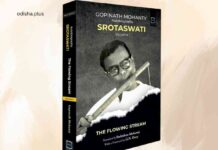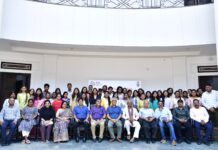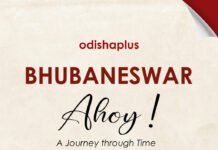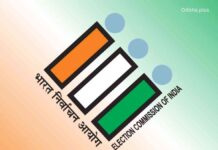Tides, Tremors & Trends explores Vivek Patnaik’s reflections on governance, democracy, and global issues through the lens of a seasoned civil servant
Satya Narayan Misra

In the marketplace of ideas, ideology, and public policy, the civil servants are the silent, faceless musketeers who hew and hum the parchment of public policy. During their active service, the conduct rules emasculate their freedom of speech and expression, particularly about the fairness of public policy or the conduct of the political executive. But once they superannuate, some either become strident critics of the government of the day or write reflectively the pathways to a better India. While Mr EAS Sarama (1965: IAS) batch is a great crusader for electoral reforms, illegal mining, Harsh Mander & Aruna Roy are well-known activists; a few like Subba Rao or Vinod Rai belong to the latter category.
Mr. Vivek Patnaik (IAS 1966), who served from the state to the centre to the international pasture of ICAO at Montreal, belongs to the classical liberal club, who is not afraid to lend his pen to stem the rot that has seeped in the global and national milieu through what he considers as the rise of ochlocracy and kakistocracy. His just-released book “Tides & Tremors of Our Time” captures through his opinion pieces in the robust English daily Political & Business Daily captures the angst of our times and his panacea for a better India & the world.
Vivek Babu is a political scientist by training, a historian by temperament, and an internationalist by profession. His opinion pieces hinge on four critical pillars: classical liberalism, robust faith in institutions, separation of powers, and neutrality of the civil services. Most of the pieces in the book revolve around this quartet. In Four Quartets, in the poem Burnt Norton, TS Eliot wrote: Time Past & Time Present, Are Perhaps both present in time future. In the essay Turning Points of History, he brings out’ how history has multiple defining moments, be it politics, society, science, and religion’ and lessons that we need to learn lest, as Santayana wrote: Those who cannot remember the past will be condemned to repeat it.
In an essay “Why Nations Fail & Fall”, like Acemoglu, who flagged the importance of institutions, he believes that only a robust political system, a neutral civil service, a free press, and independent & fair conduct of elections are germane to the survival of a state as an enduring reality. He believes that there is a need for disintegrating the present monolithic bureaucracy at the centre and states and deploying them as part of Panchayats & Zilla Parishad, if we intend to strengthen grassroots democracy. He hits the nail on the head about the disconnect between the political setup and bureaucracy in our Panchayats after they came into being in 1993. Modernization of civil services and their neutrality are his constant refrain. He quotes Eliot’s who wrote, ‘Between the Idea and Reality, between the motive and the act falls the shadow ‘.
The internationalist in him is engulfed by an apprehension of the looming global dystopia, with Donald Trump again on the saddle, with his cry to “Make America Great Again “ (MAGA). He believes that it will struggle to regain its status and feels that the world is tending towards multipolarity. While lamenting about the decline of international institutions like the UNO, he believes that we should live with it , with all its warts and
moles. He is firmly of the view that all the stakeholders in the system should yield to institutions, laws, and conventions. Liberal institutionalism is like an article of faith for him in the conduct of international relations between sovereign nations, rather than unilateral use of force by countries like the USA & Russia in Iraq and Ukraine, respectively, without sanction of the UNO & Security Council. He is a firm votary of a rule-based World Order. There is a lovely piece where sociologists should evolve an Index of Intolerance, the way Amartya the economist, devised the Human Development Index. His piece on Ratan Tata, when he comes to his house, and enjoys a typical Odia snack at his place, is also reflective of the easy amiability that Vivek Babu naturally displays.
He is deeply anguished by the destruction of Babri Masjid,’ driving an irreparable wedge between the Hindus and Muslims, and the need for collective action, when institutions are under attack and majoritarian is fostering a climate of intolerance and encouraging polarization in India at present. These are the concerns where the classical conservative comes out of his crease and writes about the classic dilemma we are confronted with today in India, whether to support the current order or be indifferent, as many like him feel ‘asphyxiated’. This is roiled further as press freedom often’ confuses the border between publicity and propaganda’, as during the Nazi regime. Noam Chomsky‘s grim description of the American press as subserving the interests of the big corporations in the 70s in the book ‘Manufacturing Consent’, seems to have cast a similar sinister spell on the Indian media.
The world is presently going through a turmoil with the rise of the far right. Quinn Slobodian, in a riveting book ‘Hayek’s Bastards’ brings out how Javier Milei, President of Argentina, brandishes a chainsaw to mimic the evisceration of government spending. There is the sinister rise of hard borders as evidenced by Trump’s anti-immigration policy, tariff wall instead of free trade, and open contempt for international institutions like the WTO. Fortunately for every Trump, there is a Carney, a newly elected President in Argentina, and Albanese in Australia to stop the menace of the madness of Trump. Or a Lula in implementing his successful Bolsa Familia program in Brazil to provide financial assistance to low-income families, in contrast to the open approbation of oligarchs in Davos by Milei in Argentina. There is thus a need to ensure that classical liberalism is in place to promote a more inclusive and welfare-oriented society.
Elites like superannuated civil servants can play a significant role by speaking truth to power and holding a candle for the defenseless and voiceless, who social and economic justice elude as the oligarchs in cohorts of the political elite purloin the fruits of prosperity. Joseph Stiglitz, the Nobel laureate, calls for ‘shared prosperity ‘and the need to regulate market failures, market fundamentalism, reduce growing economic inequality, promote social equity, and usher in a more just and equitable society.’ Civil Servants like Vivek Babu play the role of a beacon light through their pens, through their insight, intelligence, experience, and introspection.
They can not remain indifferent to the tides and tremors that society is going through. As the holocaust survivor, Elie Wiesel, the Nobel laureate, in one of the greatest speeches delivered on 12th April 1999 in the forecourts of the White House: Neutrality helps the oppressor, never the victim. Silence encourages the tormentor, never the tormented. To remain silent is the greatest sin of all.’ Vivek Babu must be complimented for not sitting back and being indifferent to the myriad angst of our time , both in India and the world but articulating them , bringing both joy, objective analysis and food for thought to his innumerable readers and policy makers. Invisibility of a civil servant should not make him voiceless and helpless.
(The writer is a Professor Emeritus, KiiT University, Bhubaneswar. Views expressed are personal.)





























